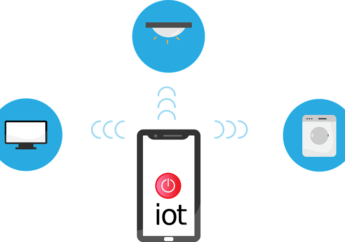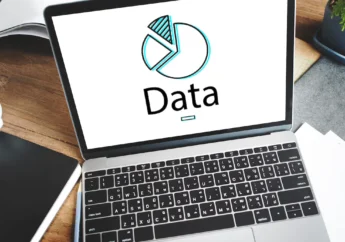Big Data For Small Businesses: How Can Businesses Utilize Big Data?
by Shahnawaz Alam Business Intelligence Published on: 27 February 2024 Last Updated on: 24 May 2024

Big Data For Small Businesses. What’s the correlation?
In truth, the benefits of utilizing big data to your advantage as a small business owner are great. Some of these business-boosting boons? From improved efficiency to reduced overhead costs and being able to better understand your product market fit and customer audience base, the opportunities to improve your small business through big data insights are abundant.
If you still find yourself a little confused as to what big data is and, more importantly, how effectively analyzing and managing big data can massively benefit your small business, just keep reading.
What Do We Mean By “Big” Data, Exactly?

So, what is ‘big’ data, exactly? And, perhaps more importantly, how does big data differ from other types of data? Of course, if you have the time and resources at your disposal, you can learn more about big data by studying for a business analytics degree online. Alternatively, here’s our take on the concept:
Big data refers to – perhaps unsurprisingly – the huge amount of data, statistics, and factual information that can be collected and collated via various data tracking sources. As a business owner, it can be quite easy to feel completely overwhelmed by the sheer volume of big data that inundates your business’s data-tracking resources daily. It can also be exceptionally challenging to navigate, monitor, and manage the amount of data you have access to through your business analytics resources. As well as this, knowing how to most accurately analyze and best utilize your business’s big data can be very difficult.
It’s important to note here that there exist several different types of big data:
Unstructured Big Data
Perhaps one of the hardest-to-manage forms of big data, unstructured data is also often the most abundant kind! It can come from various unorthodox sources – including social media platforms, as well as other forms of digital and electronic communication such as emails and SMS messages. One example of unstructured data is when a social media user posts about your brand on their digital profiles. Of course, it can be difficult to monitor these forms of external data, and if you’re not versed in how to navigate unstructured big data, it can be even more difficult to analyze it.
Structured Big Data
A more traditional resource in terms of tracking big data is in the ‘structured’ format. Structured big data refers to the use of manual databases such as spreadsheets to track business data analytics information. As structured big data is mostly managed in-house, it is often much simpler to monitor, analyze, and track than unstructured big data.
Semi-Structured Big Data
While semi-structured big data is not strictly traditional, it is, on the other hand, still relatively organized. For this reason, it is also quite easy to manage and monitor. A good example of semi-structured, trackable big data is HTML code.
Big Data For Small Businesses: Why Are They Important?

Big data is not only essential for large businesses, but it can also be quite useful for small ones as well. Once businesses make use of big data, they will be able to discover newer insights that will help their businesses stay ahead of the competition.
In the early days of big data, they used to be the domain of large companies. However, as time passes, big data is getting increasingly important for small businesses as well. There are a variety of reasons why big data is becoming important for businesses with time.
Businesses Can Analyze Customer Behavior
In the first case, big data helps small businesses gather and analyze different types of information from a variety of sources. Here, data analysts gather data from – website visits, transactions, and social media interactions. These data provide data analysts with an idea of the online behavior of customers, as they find out patterns in customer behavior.
As a result, these analyzed data give valuable insights into the preferences, buying habits, and online behavior of customers. Hence, as the company understands its customers better, it will be able to cater better to the needs and demands of its target audience. Furthermore, they will also be able to learn what their existing customers want in general. Here, they will be able to personalize their advertisements for products and improve their customer service.
Better Decisions For Business
In addition to that, small businesses are also able to make better decisions as they have better access to customer data. With the help of such decisions, they will be able to make crucial changes to their businesses. With the help of real-time data and historical trends, they will be able to make informed choices while they make their decisions.
As a result, they will be able to make changes in their prices and find out areas where they will need to reduce/ increase their prices. Furthermore, they will also be able to streamline their business operations for better efficiency and production.
Better Productivity And Risk Management
As businesses utilize big data to make decisions, they will also analyze data about their own processes. As a result, businesses will be in a better position to evaluate those areas where they need improvements. Furthermore, they will also be able to find out opportunities and threats for the business. Hence, there shall be better productivity and efficiency.
On the other hand, with the help of big data, a business will also be able to identify different risks that exist in their operations.
What Are The Benefits Of Big Data For Small Businesses?

How can small businesses utilize big data to their advantage? Some of the many benefits of using big data in small business include:
Gaining A Better Understanding of Your Customer Base
Using big data to assist with customer analytics can assist greatly in better understanding who makes up your clientele. You can use structured big data analytics tools to gain insights into your customer audience demographics, as well as their interests and even their buying habits! Unstructured big data analysis through social media channels and customer feedback can also assist with this.
More Competitive Product Pricing and Market Fit
Using big data for market research can also prove to be extremely effective. You can utilize the insights you extract from big data to both inform your marketing campaigns and product pricing, as well as better ascertain how your product fits in the market.
Reduced Overhead Costs
Being able to utilize big data to assess where your major business expenses sit can help you reduce your spending and manage your overheads more effectively. In addition to this, you can cut back on the underperforming areas that big data exposes as not being worth spending on and funnel these resources instead into elements of the business that are working well.
Improved Efficiency
Lastly, drawing on big data helps small businesses improve their efficiency. Instead of manually tracking business analytics, using structured, unstructured, and semi-structured big data analysis tools can help you more efficiently track, monitor, and manage your business data and statistics.
Final Thoughts
Hope this article was helpful for you in giving you a better idea of the importance of big data for small businesses. Hence, if you want to make long-term changes to your business, you will also need to make sure that you are utilizing big data to make decisions and also analyze customer behavior.
Do you have more insights to add regarding how big data helps in the growth of small businesses? Consider sharing your insights in the comments section below.
Read More:







































































































